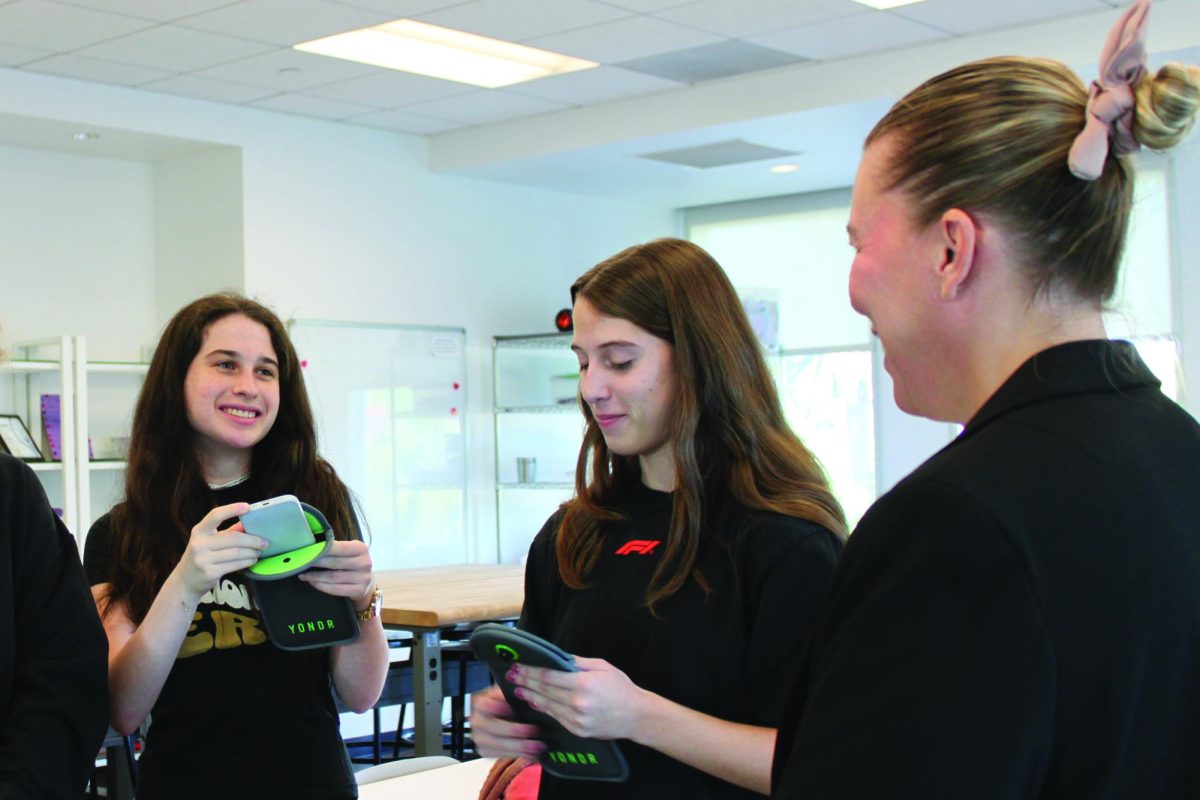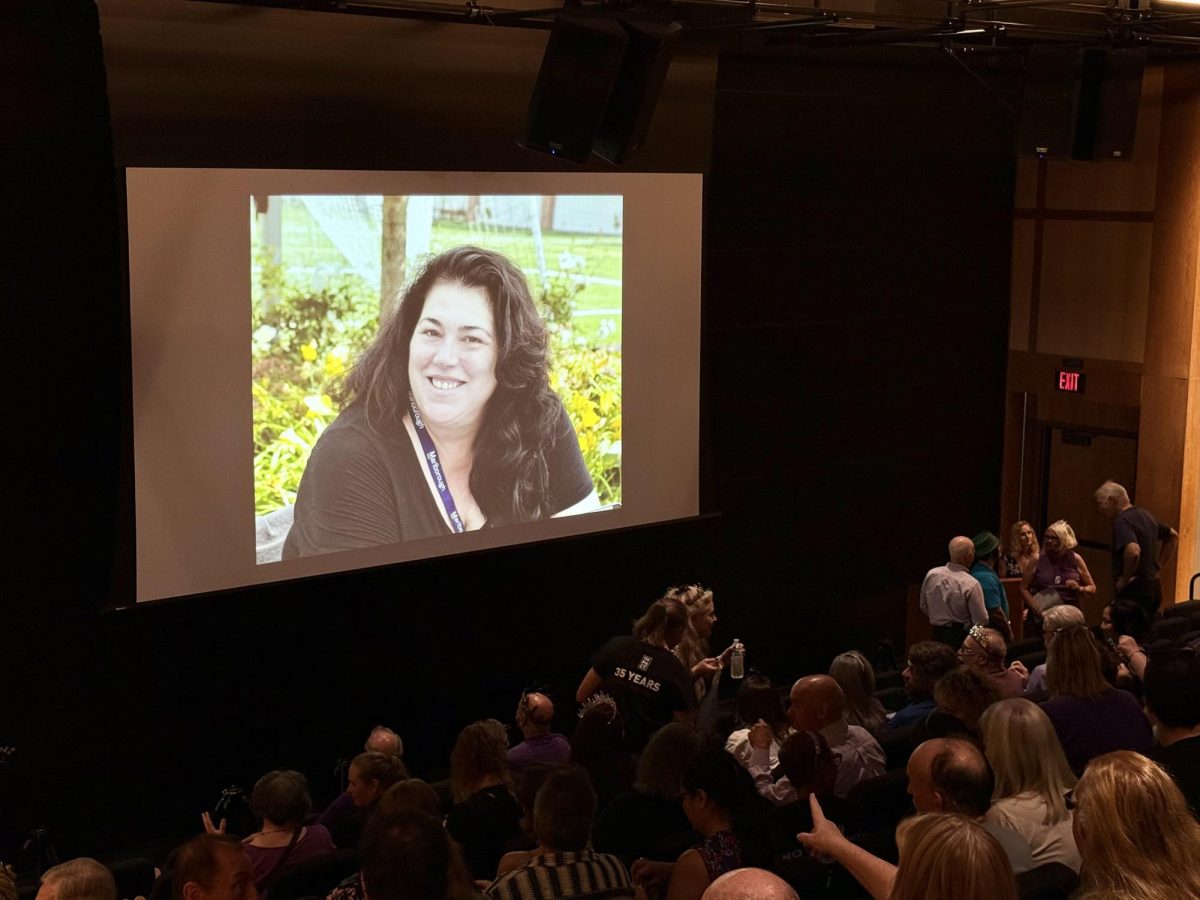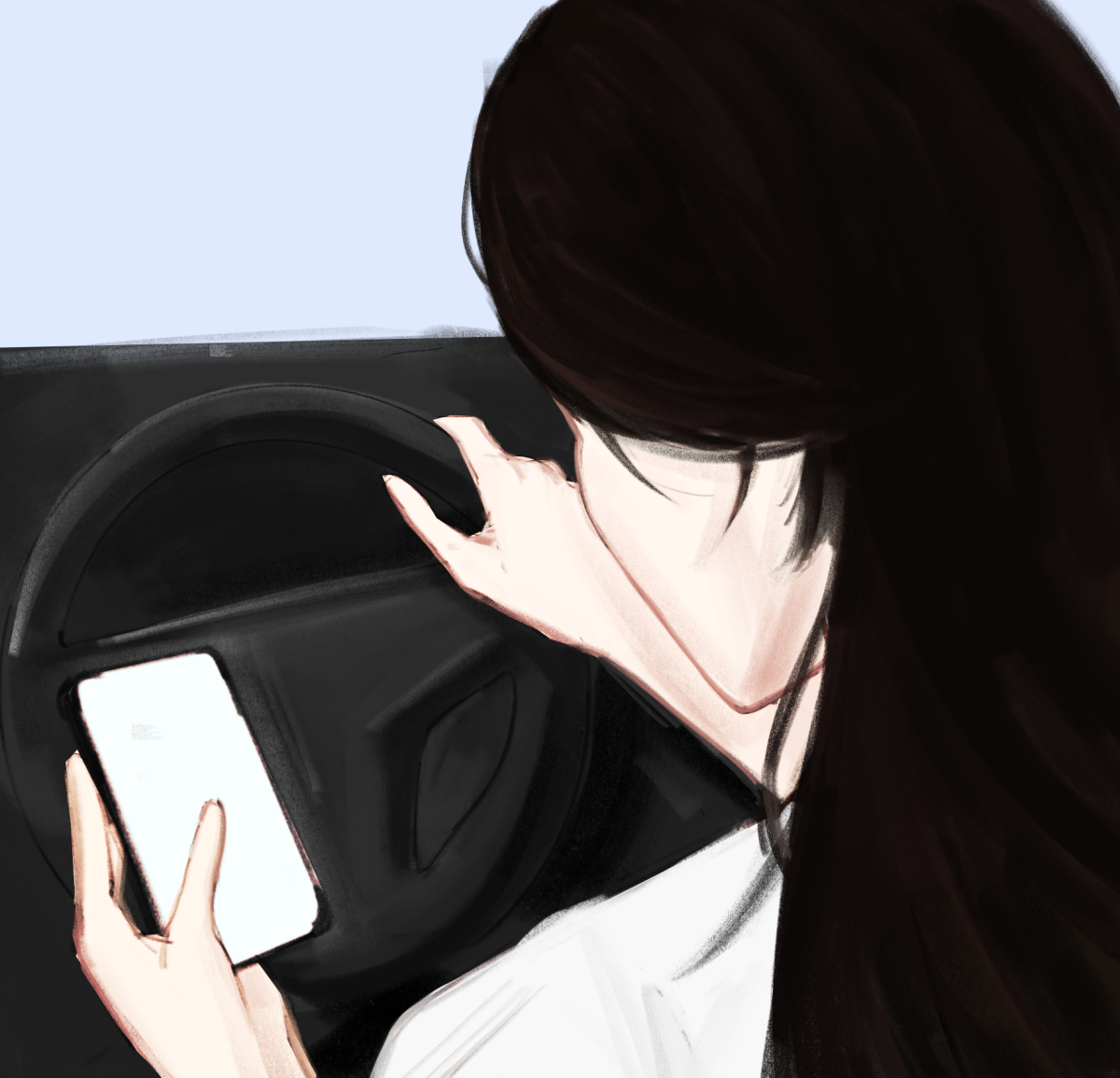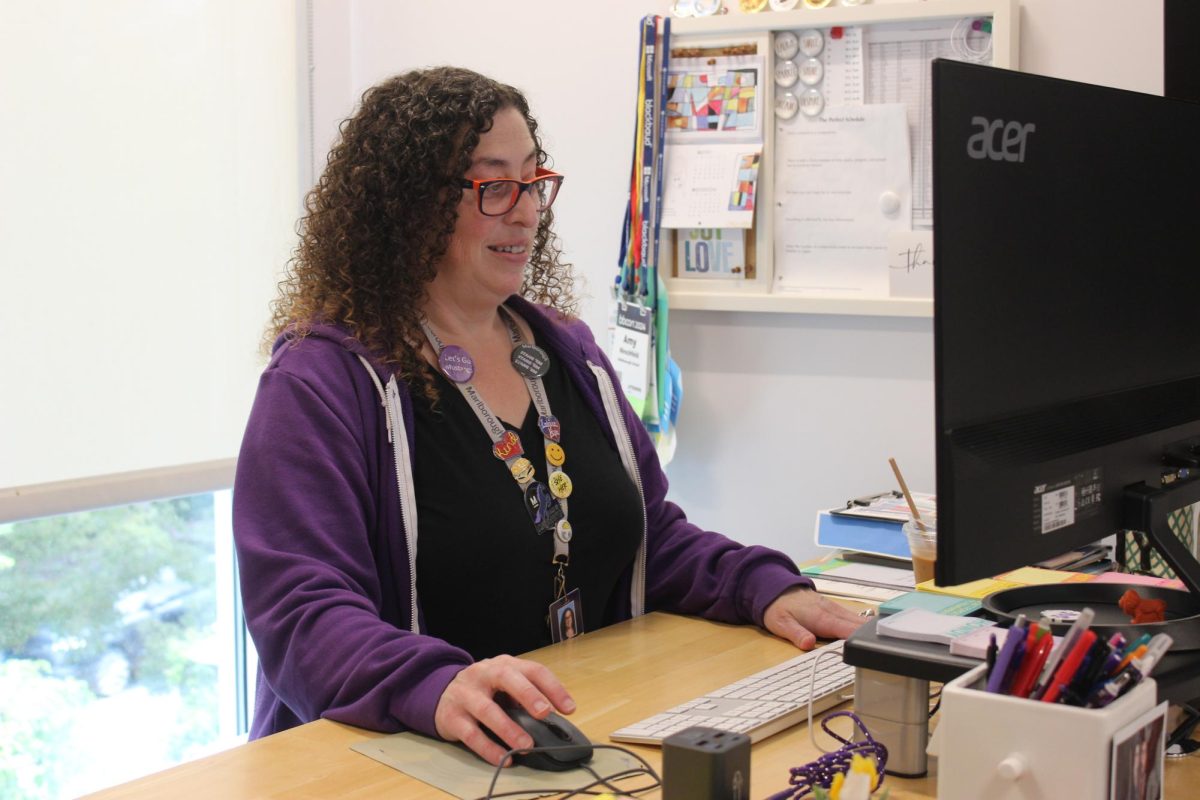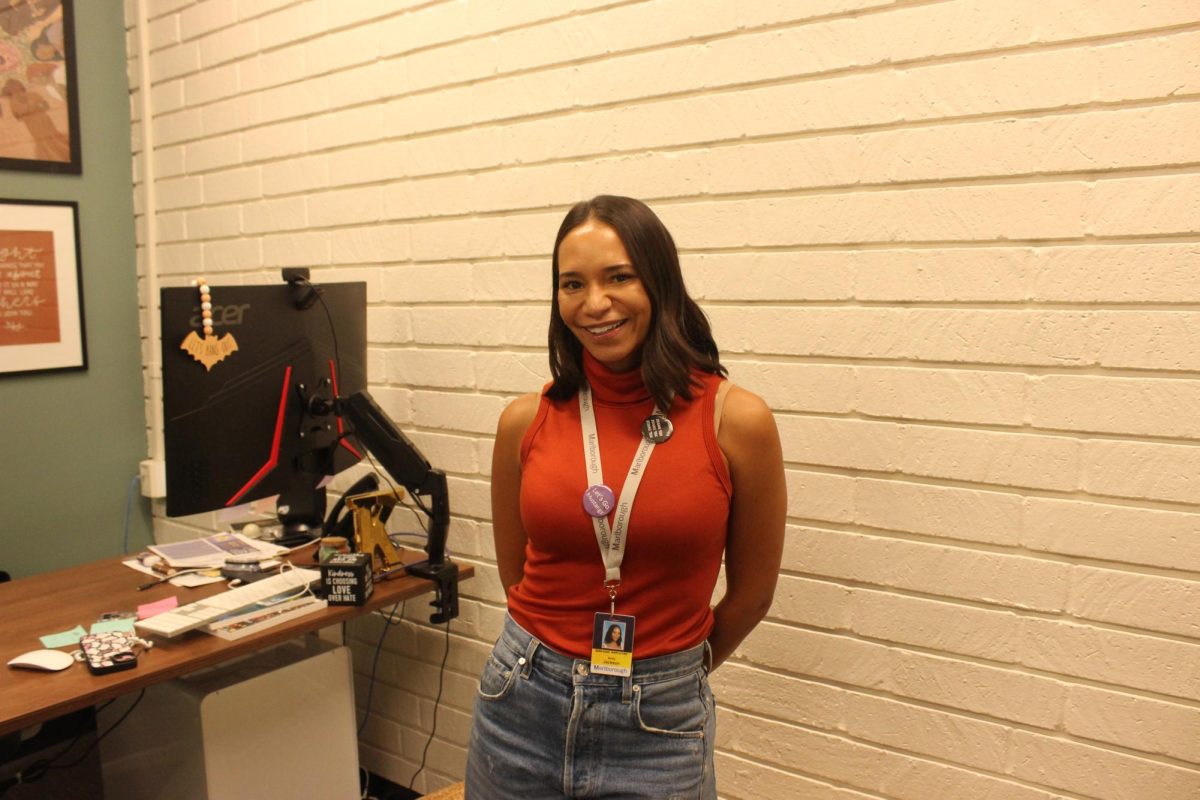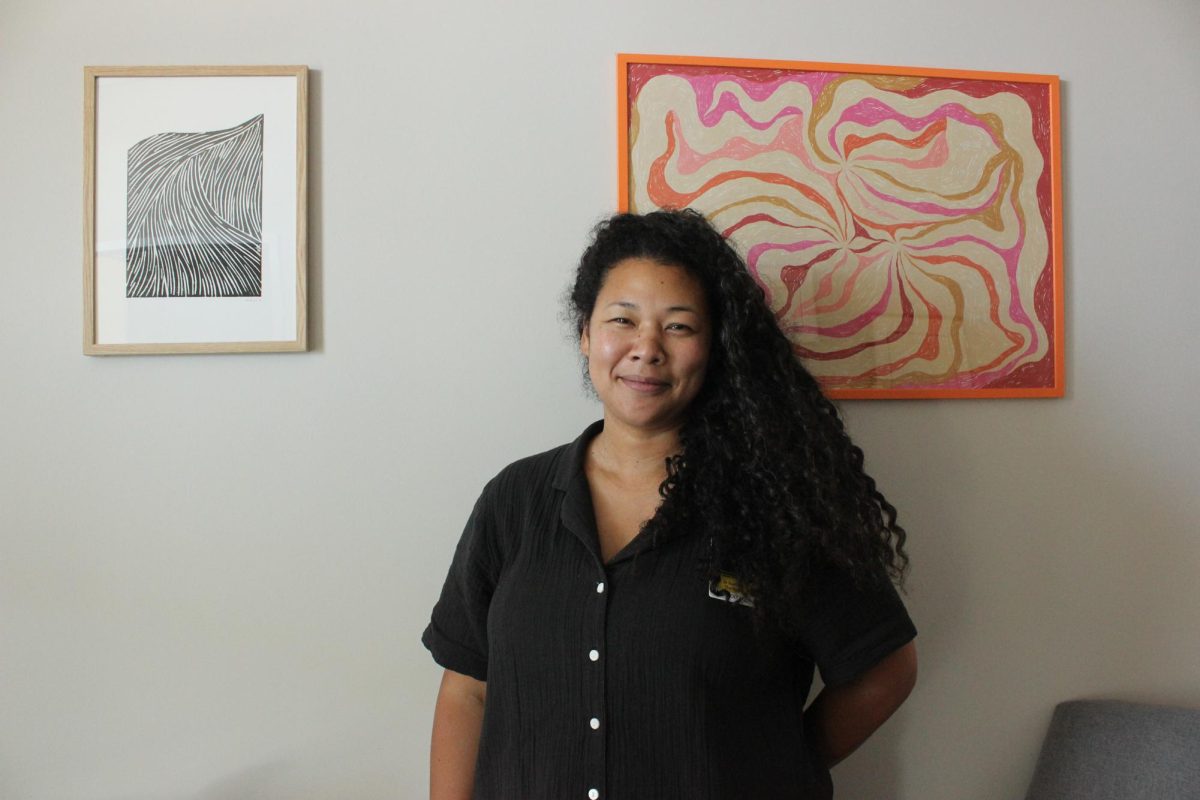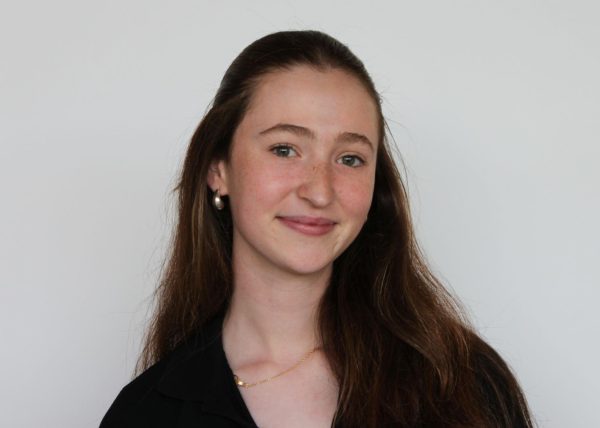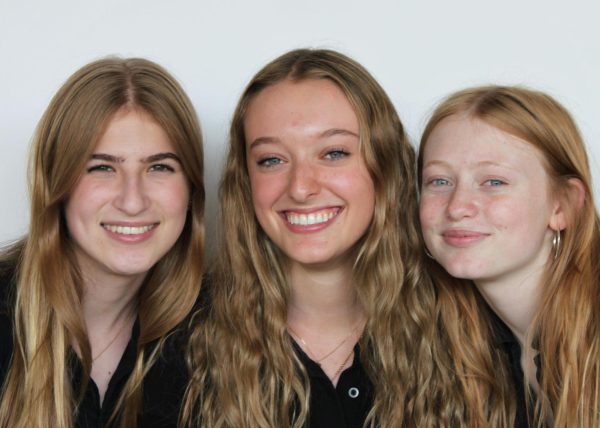Marlborough, along with many independent schools across the country, has made the switch to a phone-free campus.
After piloting a phone-free campus during “Back to the ’90s” week in May of last school year, the administration decided to prohibit the use of cellphones and smartwatches for the 2024-25 school year.
“We started seeing schools everywhere going in this same direction,” Head of Upper School Regina Rosi Mitchell said. “We were really grateful we started the conversation when we did, so we could be really clear about why this made sense for the Marlborough community, and not just us following the trend.”
Before and after the pilot week, surveys were sent out to the student body, parents and staculty. Though arguments were made for either side of the issue across all groups, 78.6% of parents and 46.4% of staculty were fully “on board” with having Marlborough go phone-free in their responses.
In the survey, some staculty expressed concern with collecting and returning phones. To address this problem, Head of Middle School Sean Fitts introduced the phone pouch company Yondr to Marlborough, having spoken to them back in 2016. Fitts explained that Yondr pouches were originally introduced to the school to pouch middle school students’ phones, as a consequence for those who were not in compliance with a phone policy at the time.
“We moved to the Yondr pouches to take the onus off of our teachers to collect and hold onto phones,” Rosi Mitchell said. “Yondr addressed all of the things we wanted. It gives students the privilege to carry their phone with them, but remain out of sight.”
An email sent out by Head of School Jennifer Ciccarelli toward the end of summer announced the updated policy and the circumstances of the decision to students.
“While we recognize that cell phones and social media can offer positive experiences,” Ciccarelli wrote, “we must also acknowledge the unhealthy habits that many adolescents develop with their phones — habits that you noted at the end of the pilot.”
The email outlines a correlation between screen time and “increased anxiety, stress, depression and sleep disturbances.” In addition to promoting mental well-being, Ciccarelli said the policy encourages socialization and minimizes distractions.
In recalling Marlborough in recent years, Rosi Mitchell said she frequently noticed groups of students seated in circles looking down at phones instead of interacting with one another.
“Change can be challenging, but I have seen how adaptable and resilient you are — you are Violets after all!” Ciccarelli said.

